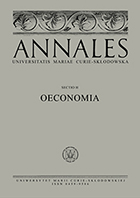
We kindly inform you that, as long as the subject affiliation of our 300.000+ articles is in progress, you might get unsufficient or no results on your third level or second level search. In this case, please broaden your search criteria.

The paper presents the study of young consumer`s perception and attitudes regarding healthy lifestyle, particularly consumption of fitness services in Georgia. The study relies on the different scientific publications on social marketing, consumer`s behavior and marketing promotions. The research underlines, that the effective social marketing campaigns should be based on the triangle of interventions: education, marketing, and law. Research revealed the strong relationship between youth`s physical activity, health and education through the use of social marketing approach. Lack of knowledge about the significance of physical education at Georgian public schools and universities makes barriers for popularization of fitness service among younger audiences. There is a need to change behavior of the youth, to identify the different needs and preferences, which should be linked directly with creation of customer oriented affords. The survey emphasizes the significant role of integrated marketing communications for increasing demand of young people on the health products. The research notes, that social media could be a driving force for the long term customer retention, financial performance and business continuity in this field. Collaborative working between civil society, government, private sector and media will increase motivation of youth to engaging in health behavior change.
More...
Bucovina is one of the most famous areas considering the natural and anthropic tourist potential, the historical monuments and the folkloric art, the therapeutical and curative factors, being the land of hardworking and welcoming people who keep traditions and customs from generation to generation. Bucovina, as tourist destination, has varied tourist resources, both natural and anthropic, which makes this are be well-know throught the whole country, and abroad. The tourism and travelling industry represents, worldwide, the most sought activity sector, the most important provider of workplaces. From an economical point of view, tourism is also a main resource for recovery of the economy of countries which have important tourism resources and exploit them properly. The sustainable development strategy of tourism in Romania and especially in Bucovina has the main purpose of generating an adequate database for increasing the internal and international tourist activity in a balanced and sustainable way, that would bring cultural and socio-economical advantages to Suceava County and its inhabitants. Postmodernity (Lipovetsky, 1996) brought over itself a change in values, ethics being imposed as a necessity and a responsibility towards the other. In our paper, we will bring into discussion a series of promoting strategies, emphasizing on the needs of the postmodern individual.
More...
In the former Soviet system, economy was financed by state. In the new independent states formed after the collapse of the USSR at the beginning of the 1990’s, traditional financing system was impossible to keep, because Post-Soviet countries began to build market economy, though their methods were different. Large volumes of foreign investments were attracted to those Post-Soviet countries which were richer in energy resources. In this view, Georgia faced problems. After restoration of independence, Georgia was in dire need of foreign investments which could be attracted only in case of successful implementation of reforms. And it happened only after the country adopted new currency, implemented nation-wide privatization, price liberalization, reorganization of enterprises and institutional reforms, in general. In the last years of development, foreign direct investment inflows increased significantly which was a result of tax system liberalization, removal of pressure on business from the state’s side and relatively stable situation in the country. (Atanelishvili, 2011, 2013, 2016; Atanelishvili, Silagadze, N., 2016; Basilia, Silagadze, Chikvaidze, 2001; Zubiashvili, Silagadze, L., 2016; Silagadze, A., 2010-2014, 2016; Силагадзе, А. 2010, 2013, 2016).
More...
In the rapid changes of the business environment companies have to improve permanently their performance to successfully face the increasing challenges and competition in national and international markets. Managerial Accounting as an integral part of the information system of the company has increasing impact in the decision process. Costs and revenues as relevant information produced by Managerial Accounting are of great importance for adopting managerial decisions. Costs and revenues that do not affect decisions are treated as irrelevant information, and are not taken into consideration in the decision process. Managerial decisions have a significant implication on performance and profitability of the company, the profits or negative financial results are a direct reflection of the quality of managerial decisions. As will be noted throughout the paper, the research shows that in the case of analyzed companies (54) in the Polog region, the level of implementation of the concepts and tools of Managerial Accounting depends on: the size of the company, human resources, the value of assets and equity, the value of debts, the type of activity of the companies, the attractiveness of business environment and the cooperation of the businesses with education sector. Results from the survey show that principles of managerial accounting as a subsystem of the larger information system are partially applied by companies in the Polog region. According to the specific findings of the paper, the implementation of Relevant Information is in direct relation to the size of the companies (micro and small companies over 90%), lack of human resources (80% of companies do not have professional staff) and the activities of companies by sectors, where 95% are trade and services and only 5% are in the manufacturing. The research reveals that companies of Polog region should cooperate intensively with institutions of research and economic education in order to ensure quality human resources as a prerequisite of effective implementation of advanced techniques of Managerial Accounting. The findings of the author of this study are consistent with findings of international and national researchers.
More...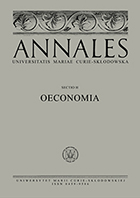
Paper exemplifies markets internationalisation processes taking into account young Polish consumers’ cross-border online shopping, and Polish retailers’ cross-border sales activity, investigated in a qualitative way on the basis of open-ended questions’ responses from the CAWI questionnaire and passive netnography respectively, on the background of relevant comparative statistics from EU countries. Such purchases, within the EU, but also from China or the USA, are made by the growing percentage of young buyers, although the majority of respondents have negative opinions about them, often emerging from stereotypes rather than from their own experience. The perceived barriers from the demand side have a stronger impact on respondents than supply side factors. Identified demand-side barriers are high prices and other fees, including payment and delivery handling, long delivery times and language barriers. Geo-discrimination practices applied by foreign sellers, usually experienced with regard to delivery and payments are the only significant obstacle on the supply side. Polish online retailers’ international operations are typically limited geographically to smaller neighbouring countries or focused on niches (particularly for smaller firms). In those niches, they compete with foreign sellers mainly on product features and customization, but their consumer service is often not satisfying, particularly in terms of response time and language competences.
More...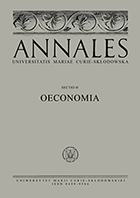
Internal audit in Poland is an institution recognized by both the law and the Polish public finance and finance law doctrine, and it has been functioning for over fifteen years. However, both its practice and its legal environment is a source of numerous problems experienced by both entities subject to internal auditing and by auditors themselves. The aim of the article is to identify activities, problems and benefits of implementing auditing in local government entities, to identify the types of risk and to create a ranking of activities influencing the increasing of the quality of public services. So that the indicated objective could be achieved, in 2016 a survey which was the continuation of the pilot study started in 2015 was conducted. The survey covered other local government entities in 14 voivodeships. The results provided a broader view of the institution of audit and its role in the self-government sector. The study contributed to identifying the risks and activities facilitating the improvement of a given entity’s functioning and increasing the quality of services delivered by public entities.
More...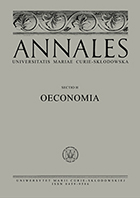
The foreign capital in the banking sector plays an important role in Central, Eastern and South-Eastern European (CESEE) countries. The global financial crisis has shown that apart from the positive impact of foreign-owned banks, they also constitute a transmission channel for shocks to host countries. This study covers 20 CESEE countries over the period 1995–2014 and concentrates on the role of foreign-owned banks for financial stability and economic growth. Our results indicate that their role is neutral, however, a negative impact may be indirect because of their aggressive lending policies.
More...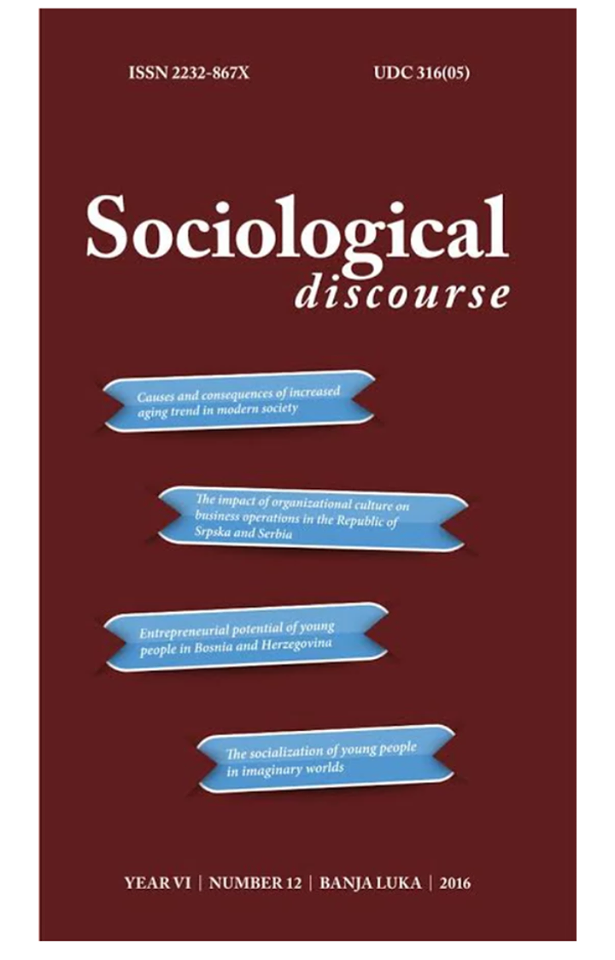
This paper primarily provides relevant theoretical framework for explaining the phenomenon of organizational culture, but also it analyzes its impact on the business of an enterprise/company and working atmosphere that occurs as a result of the impact of the organizational climate of a given company. Empirical studies on this subject have been carried out in Serbia and the Republic of Srpska, which allowed us to compare the implementation and the impact of the organizational culture in these areas. In an integral part of these studies were included: types of organizational culture, the influence of national culture on organizational culture and determination of the level of development of the same, all in order to improve business operations in Serbia and the Republic of Srpska.
More...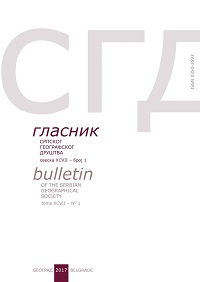
The indicators, precisely describing the linkages between tourism and the environment, social and cultural base, are not easily available. However, some relevant organizations (WTO, EU, OECD, etc.), institutions and experts, have been hardly working to create the indicators of sustainable tourism. Whereas the economic objectives are easily defined by the use of the traditional indicators used in national and business economics, it is very difficult to identify widely applicable environmental, social and cultural indicators. In order to stimulate and alleviate the process of sustainable tourism development, EU created the list of comparative indicators of sustainable tourism. In preparing this list, special attention is paid to identification of valid indicators of real tourism impacts on the social and cultural environment (the entire set of traditions, customs, history, hospitality and culture that characterize a given area), that is a very complex task. Assuming the fact that the related indicators have been analyzed in many European countries, this paper is focused on applying the related indicators in research of tourism development in villages of the Kosjerić community.
More...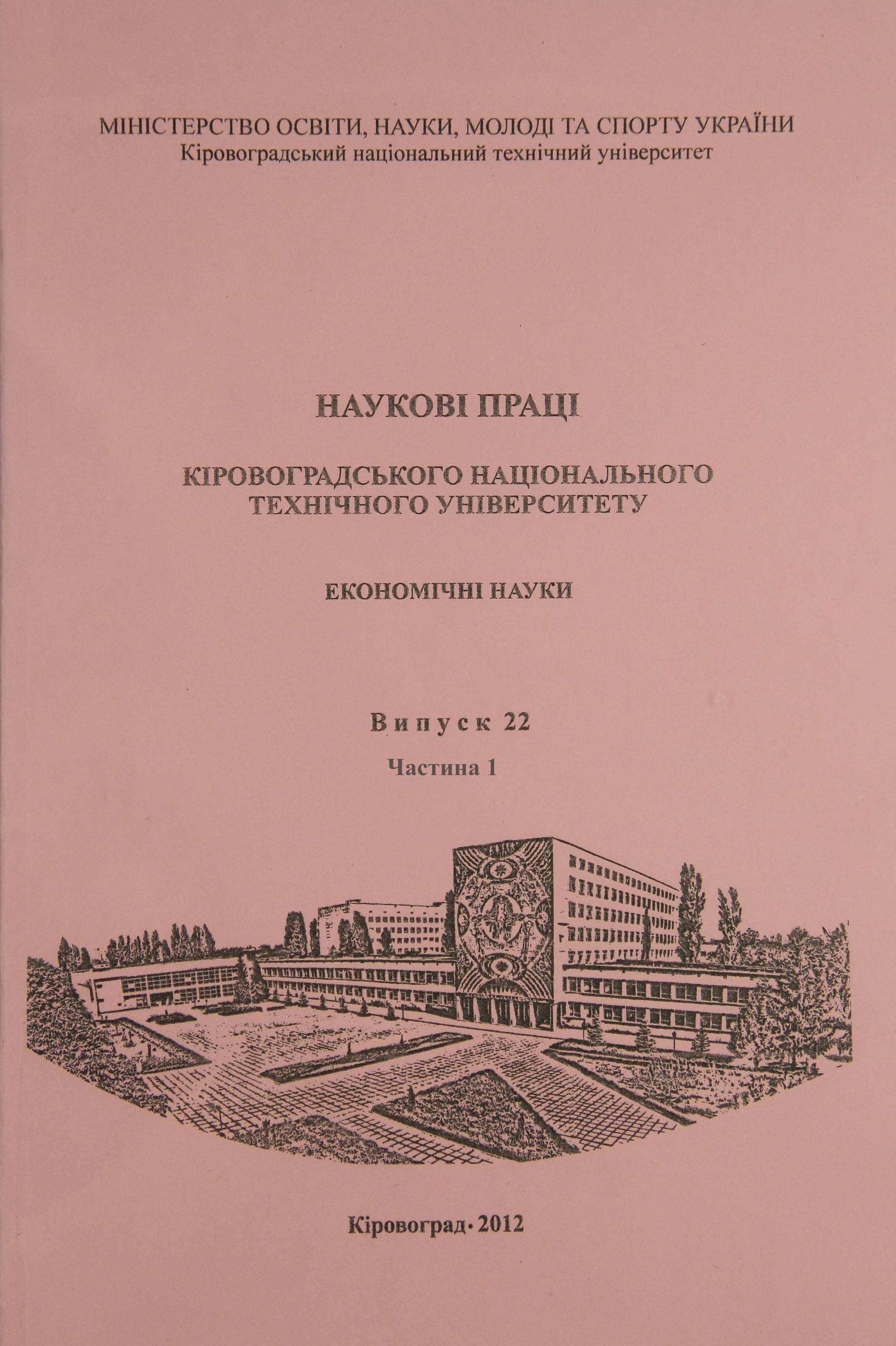
The article investigates the process of socialization of relations in the enterprise. It was determined by the relationship of socialization and development. The type of socialization process stages of technological development and life cycle of the enterprise, as well as identifies a number of factors influencing the specificity of their formation are defined.
More...
The article informs about the views of different scientists on the periods of Consumer Cooperatives in Ukraine, isolated and characterized the evolution approaches to the formation of enterprises personnel and consumer cooperative organizations in Ukraine, compared to the periods of Consumer Cooperatives in Ukraine and the formation of enterprises personnel and organizations of consumer cooperatives in Ukraine.
More...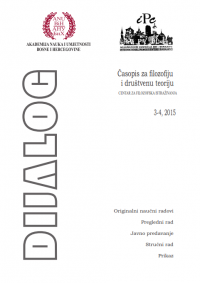
A person is an autopoietic being who ensures his/her quality of life and creation by self- and co-operation in a live autopoietic network. Organisation as well as society must act as a harmonic self-learning subject which has strong internal connections and is autonomous, while having an ethical-ecological connection with environment. From its short history we are reviving the principle of self-management as an element of autopoietic organisation, based on person’s humanity, self-cognition and ethical-moral views, as a turning point of society and moral capital. We proved that self-management is an element of autopoietic organisation, integrated into an autopoietic network, and that organisations have a lack of reflection, which can be filled in by the model of “The Informational Graph of Autopoiesis”. The research opens new possibilities of holistic approach for developing new organisation paradigms to establish organisation of future: How from allopoietic to autopoietic self-management? We developed new prospects, represented by a model “The Tree of Development”, as a model of an autopoietic organization. The final objective of our study is to connect science, art and high technology so that we achieve autopoietic culture of life.
More...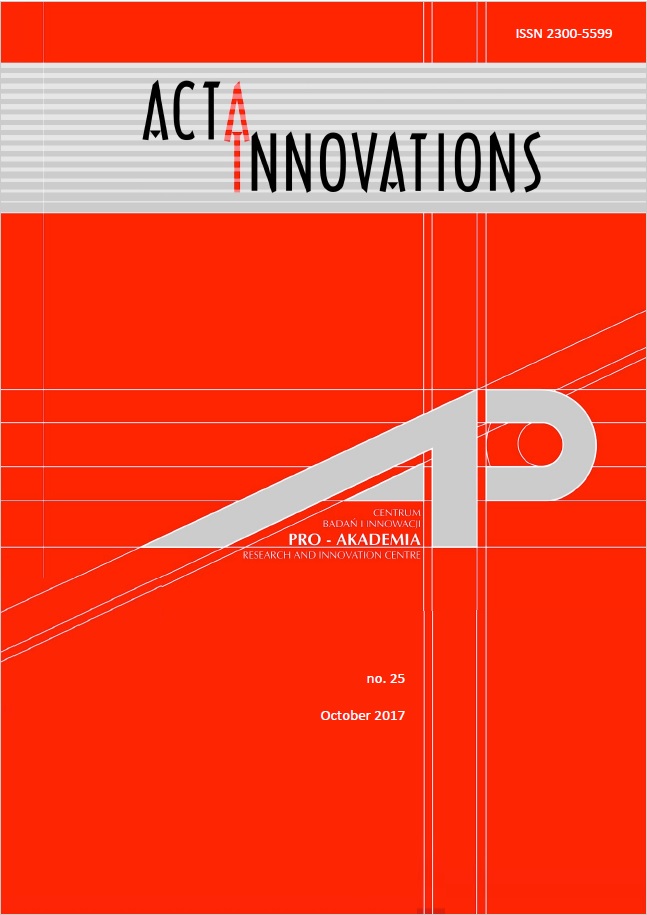
Tematyka networkingu - budowania i podtrzymywania szeroko pojętych sieci powiązań, stała się istotnym punktem rozważań dotyczących powstawania kapitału społecznego, a co za tym idzie, sukcesu gospodarki opartej na innowacyjności. Ważną rolę do spełnienia przypisuje się systemowi edukacji, uczelniom i instytutom badawczym, które poprzez uczestnictwo w różnego rodzaju sieciach, przy wykorzystaniu wypracowanych wspólnie narzędzi i programów współpracy przyczyniają się do wykształcenia postaw i zachowań społecznych pożądanych w celu zbudowania społecznego kapitału rozwoju. Przedstawione przykłady istniejących sieci i programów promujących mobilność i współpracę międzynarodową są próbą znalezienia odpowiedzi na pytanie w jaki sposób networking uczelni i instytutów naukowych wpływa na budowanie kapitału społecznego.
More...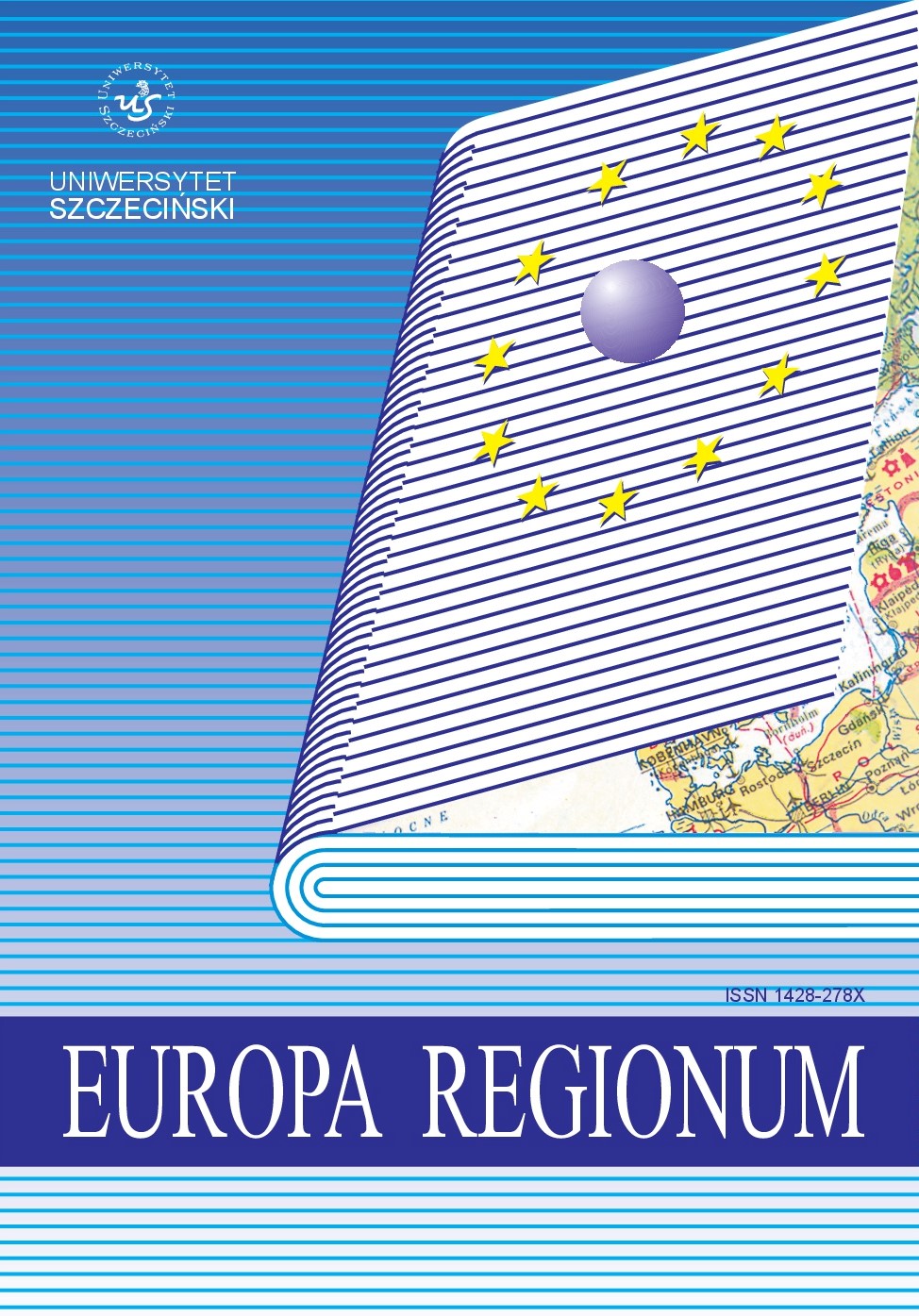
Reference budgets are considered to be an instrument to build consensus in society about what is an adequate income. The predominant notion states that they should show the private minimum costs of adequate baskets of goods and services, so that after tax household incomes can be compared to the budgets to assess adequacy. The author presents the development of Bulgarian food basket for three clearly defined hypothetical households, namely a single person at active age, a single parent with two children and a couple with two children. All households are assumed to live in the capital city of Bulgaria. The context of the food basket is characterized by widely diverging eating patterns in Europe, a general lack of comparable data on food consumption and limited common guidelines regarding what constitutes a healthy diet. Secondary sources of information are used to develop a rough framework. Three focus groups are conducted in Sofia to create the food basket. The basket is priced based on price checks. As a result, a food basket (healthy and unhealthy) and kitchen equipment basket are developed for abovementioned three types of households.
More...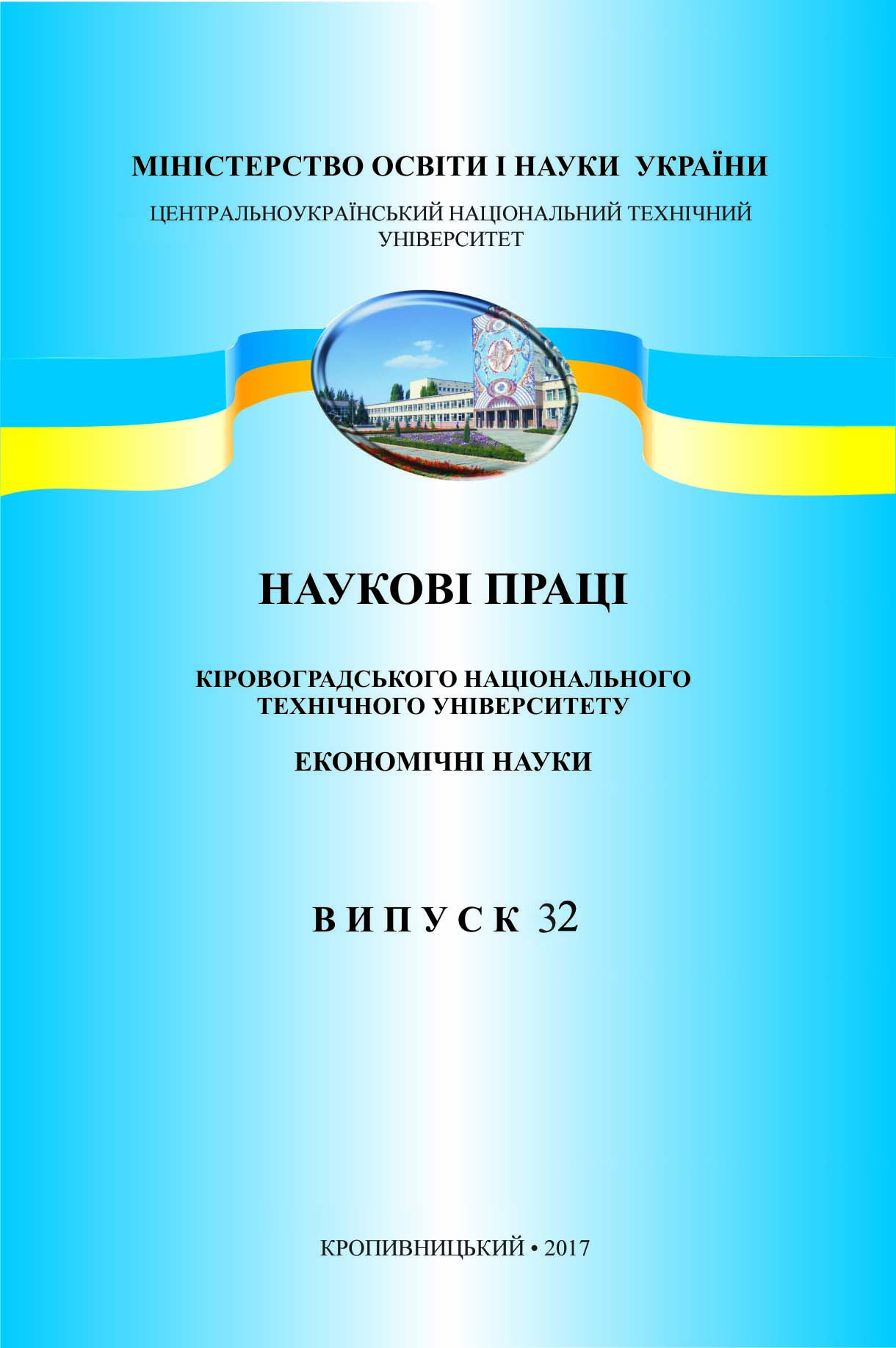
The purpose of this study is to analyze the development of scientific approaches to understanding the term «tax» («taxes») and to define the essence of the concept of «tax» on the basis of clarifying its content characteristics.Based on the research of scientific sources, approaches to understanding and perceptions of the term «tax» («taxes») at various stages of development of economic systems in modern conditions are systematized and generalized. The content characteristics of the term «tax» have been determined and the need to take them into account when interpreting the essence of the given concept. The author's definition of the «tax» concept is based on its perception and understanding as a philosophical one (contributes to the correct perception of the phenomenon under study and its functioning in interrelation with the external environment), financial and economic (justifies the expediency of forming the state tax system), socio-economic (justifies the need to redistribute the gross domestic product between the budget and various spheres of society) and the legal category (regulates the relationship between from the state and taxpayers, determines the forms and methods of managing tax relations and the patterns of their development).It was given the meaningful characteristics of the philosophical, financial-economic, socio-economic and legal manifestation, the term «tax» should be understood as a mandatory, unconditional, individually gratuitous, regular and legally determined payment paid by individuals and legal entities to the budget of the corresponding level for the purpose of financial support of the state's activities. (regions) and satisfaction of public needs.
More...
The object of this research is studying and analyzing of current state of automation of customs control and customs clearance procedures for water vehicles and for goods which are moved by them. The process of automation provides the observance of customs and tariff regulation measures and creation of conditions of acceleration of goods turnover, which place an important role in regulation of foreign trade of state.The issues of current state of automation of customs control and customs clearance procedures for water vehicles and for goods which are moved by them are opened in the article. Particularly, the software complexes of the SFS of Ukraine (Single Automated Information System SFS; Single Window of SFS, ASCO Inspector, System of Analysis and Risk Management), of private structures (Information System of the Port Community), programs developed by the Customs (Electronic Journal of Container Accounting Red Container), which are used to facilitate customs control by SFS officials, and progressive approaches to the analysis and assessment of risks to the arrival of goods (Cargo Targeting System of the World Customs Organization) which are made out by the World Customs Organization) are researched. Advantages of each of these systems are identified. Furthermore, the problem issues of automation of customs control and customs clearance procedures for water vehicles and for goods which are moved by them are identified.The research shows, that the system “Single Window” of SFS and Information System of the Port Community are duplicate functions of one each other and provides the same service to the subjects of foreign economic activity. Besides, they are characterized by the complex of problem issues as in law field as well in practical field of automation of customs control and customs clearance procedures
More...
The purpose of this study is to clarify the definition of assurance engagement, other than audit or review of historical financial information, as a type of audit services, and to justify possible directions of activating their using.Based on the analysis and generalization of the terms in the International Standards on Quality Control, Audit, Review, Other Assurance and Related Services, broad definitions of audit, assurance engagement and its elements, an author's interpretation of assurance engagement, other than audit or review of historical financial information, is proposed. The principles of selecting titles for specific types of such engagements (obligatory indication of the object and type of engagement) are proposed to separate the actual audit and other assurance engagements for the purpose of their using in the practice of external and internal audit. The expediency of introducing statutory and recommendatory assurance engagements, other than audit or review of historical financial information, for the objects that are important for socio-economic development at macro-, meso- and microlevels is substantiated.Proposals of the study should be taken into account when refining the engagements as an integral part of the list of services that can be provided by auditors (audit firms) and when developing such a document as the Statute of Internal Audit provided by the Standards of Qualitative Characteristics of the International Standards of Professional Practice of Internal Audit, the development of their organizational and methodological support for specific subject matter.
More...
The purpose of the article is to provide scientific and methodological substantiation and development of a model for predicting the development of agricultural production in the Kirovohrad region on the basis of the application of artificial neural networks. The peculiarity of forecasting at the regional level is the need to take into account a significant number of exogenous and endogenous factors of influence. For prediction along with traditional methods of econometric analysis of time series it is expedient to use artificial neural networks. Correlation dependence of factors of development of the agrarian sector of the economy influencing the dynamics of gross agricultural production is determined. The theoretical model of forecasting of gross agricultural production is developed. According to research results, using the method of artificial neural networks and the software product of the analytical platform of the Deductor Academic 5.3.0.88 package, a methodical approach has been developed to construct a forecasting model for gross agricultural production. The essence of the proposed approach is based on a combination of methods of adaptive forecasting and the instrument of artificial neural networks.The methodical approach of adaptive forecasting of gross output of agricultural production is developed. The model of adaptive prediction based on artificial neural networks allows to take into account a significant number of factors of influence and tendencies in the development of ultra-complicated systems, which include agriculture, as well as to provide a lower error margin of forecast.
More...
The purpose of the study is to determine and characterize the basic principles of non-waste production in the agro-industrial complex, the use of which minimizes the costs of raw materials and energy resources, limits the negative impact of production on the environment, rationalizes the production and economic activities of the agro-industrial complex.For the rational combination of the efficiency of agricultural activity, environmental safety and social orientation in the agro-industrial complex, the resolution of the issue of development of non-waste technologies has a great importance. Non-waste production involves the development of such technological processes that provide integrated processing of raw materials, which allows to use natural resources in an efficient way, to process waste products into goods for sale and to minimize environmental pollution. It is proved that the restructuring of existing production in the agro-industrial complex and ensuring the efficiency of technological processes is possible with the use of economically and environmentally balanced systems that exclude pollution of the environment.The task of non-waste productions introduction is to create closed cycles of production with the further recycling of raw materials, where each final link of one production serves as the starting point of the next. As a result of such approach, the environment does not receive waste and minimizes the negative consequences for the natural environment.
More...